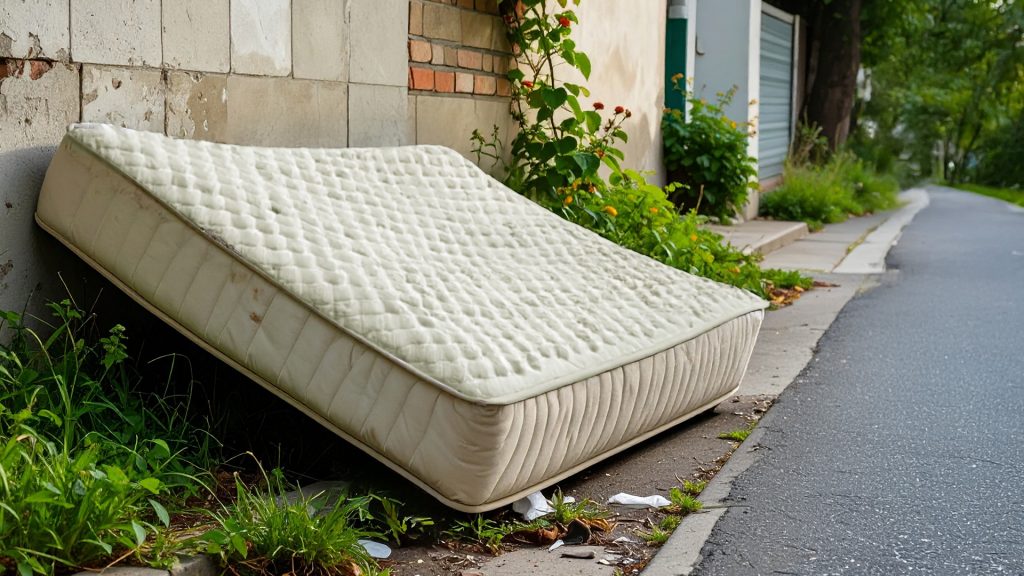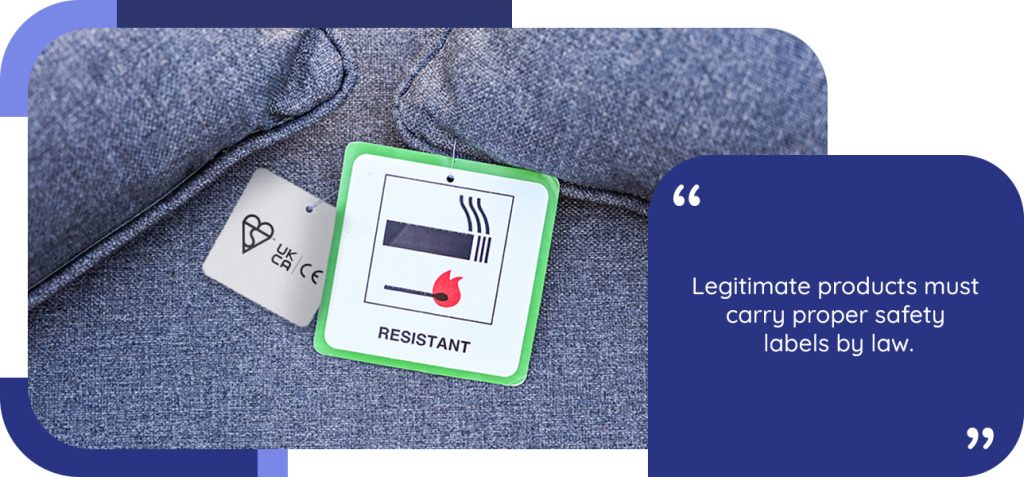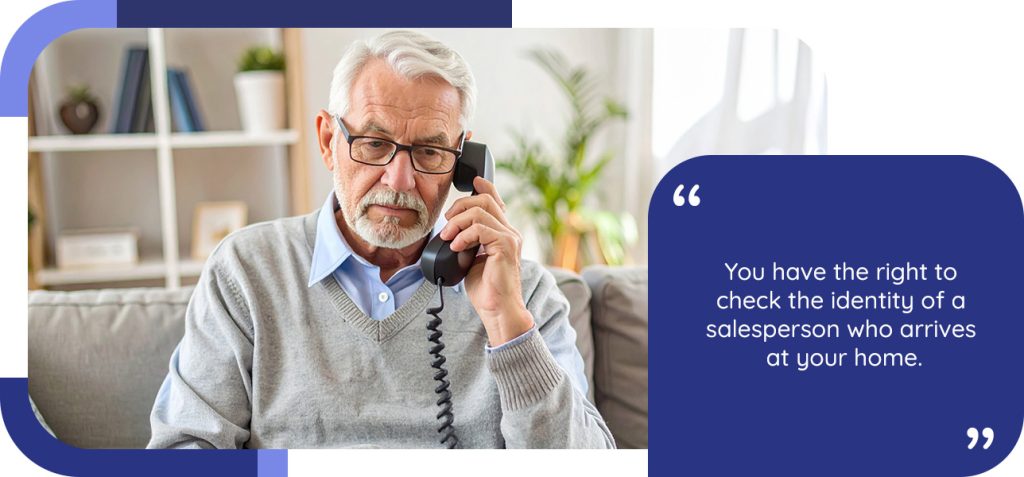How to avoid rogue traders and industry cowboys when buying adjustable beds and mobility furniture

Shopping for an adjustable bed or buying a riser recliner chair should be an exciting and empowering step toward enhancing your comfort and independence. It represents a significant investment not just financially, but in your daily quality of life and well-being.
Unfortunately, this important market is also targeted by unscrupulous sellers—often called “rogue traders” or “industry cowboys”—who use aggressive, manipulative tactics to separate you from your hard-earned money.
These sellers prey on vulnerability, targeting older adults or those with mobility challenges who are seeking solutions to pain, discomfort, or reduced independence. They understand that under these circumstances, you may feel pressured to make a quick decision about a product that promises relief.
The financial and emotional cost of falling victim to these scams can be devastating. People have lost thousands of pounds to fraudulent dealers, paying a deposit for a bed that never arrive or receiving substandard, often dangerous, products that break down within weeks.
For many victims, their money vanishes along with the traders who took it, leaving them without recourse or the essential equipment they need.
This comprehensive guide will walk you through everything you need to know to spot the warning signs, thoroughly verify a company’s credentials, understand your consumer rights, and ensure you are dealing with trustworthy professionals who will stand behind their products for years to come.
Navigation guide
1. The rogue trader’s playbook: common scams and tactics
2. Spotting the difference: rogue trader vs. reputable professional
3. Researching a company’s reputation and legitimacy
4. Your due diligence checklist: a step-by-step guide to verification
6. What to do if you’ve been scammed
- Should I be concerned about all door-to-door mobility furniture sellers?
- How can I verify that a mobility furniture company is trustworthy before making a purchase?
- What should I do if I’ve already signed a contract and paid but now suspect I was misled?
- What credentials and certifications should I look for on mobility furniture and from sellers?
- Where should I report suspected rogue traders or mobility furniture scams?
8. Find the comfort and security you deserve with Adjustamatic
1. The rogue trader’s playbook: common scams and tactics
A rogue trader in the mobility furniture industry is, in essence, a seller who uses dishonest methods to make quick profits at your expense. While most retailers operate ethically and have a genuine desire to help their customers, these unscrupulous operators give the entire industry a bad reputation. Understanding their specific tactics is the first and most critical step in defending yourself against them.
Common scams to watch for
Fraudsters come in various forms, from the lone doorstep seller to sophisticated online operations, but their methods often follow predictable and recognisable patterns.
The “back-of-a-van” seller
This is a classic scam where a seller travels door-to-door, offering supposed bargains that are typically counterfeit, stolen, or second-hand products disguised as new items.
A particularly notorious version is the “mattress van” approach. A salesperson will appear at your door with a convincing story, claiming to have surplus stock from a cancelled order or a showroom clearance. They will offer what seems to be a premium memory foam mattress at an incredibly low price, often complete with fake labels suggesting quality certification from recognised bodies.
In reality, these mattresses are dangerously substandard. They often contain old, soiled, and broken springs wrapped in a new, cheap cover and certainly do not meet the UK’s stringent fire safety standards.
If someone offers you an “£800 mattress for just £150” from their van, you can be certain it is a scam involving a product that likely cost less than £50 to produce. It is a critical rule of thumb that legitimate mattress or adjustable bed manufacturers never sell their products door-to-door in this manner.
The sophisticated online scam
Other fraudsters operate convincing websites and run polished advertisements to trick people into paying for products that never arrive. They might use professional-looking branding and fake testimonials to create a facade of legitimacy, only to disappear once they have your money.
The impersonator
A more insidious and disturbing trend involves fraudsters posing as healthcare professionals or government representatives. They might claim to be affiliated with the NHS or local social services, suggesting they are conducting health assessments or helping people access equipment funding.
These imposters use the trust you place in official institutions to gain entry to your home and win your confidence. Some have even pretended to conduct “free health assessments” as a pretext to gather sensitive information about your medical conditions, which they then use as leverage to pressure you into purchasing expensive equipment you may not need.
It is crucial to remember that genuine occupational therapists, council staff, or NHS representatives will never cold-call you to sell a commercial product.
The tactics of manipulation
What unites all rogue traders, regardless of their specific scam, is their reliance on psychological manipulation and pressure. Their entire strategy is built around rushing you into a decision before you have time to think clearly, conduct research, or seek advice from family or friends.
Creating false urgency
They manufacture a sense of panic with high-pressure phrases like, “This is a one-time offer,” “The price goes up tomorrow,” or “This is the last one I have in stock”. This is a deliberate tactic designed to bypass your natural caution and prevent you from engaging in careful consideration. They want you to feel that if you hesitate, you will miss out on an unmissable bargain.
Using scare tactics
Some rogue traders may prey on your health concerns, suggesting that your current sleeping or seating arrangement is actively endangering your health or posing a safety risk. They might make unfounded claims that your existing bed is causing long-term damage or that you need to make an immediate purchase to avoid serious consequences.
By creating fear, they hope to force an immediate, emotional purchase. No ethical seller will ever use fear about your health to coerce you into a sale.
Claiming false affiliations
Scammers may frequently drop the names of respected organisations like the NHS, Age UK, or various disability charities, hoping you won’t take the time to verify their false claims of endorsement or partnership.
These reputable organisations do not endorse specific commercial products, and legitimate companies would not misrepresent such a relationship. If someone makes such a claim, always ask for verification you can check independently.

2. Spotting the difference: rogue trader vs. reputable professional
Learning to spot the red flags of a rogue trader can save you from costly mistakes and emotional distress.
The contrast between a scammer’s methods and those of a genuine professional is stark. A reputable company’s practices are designed to build trust and ensure customer satisfaction, while a rogue trader’s are designed for a quick, untraceable profit.
| Feature | Red flag: the rogue trader’s approach | The professional standard |
| Initial contact | Appears at your door uninvited or cold calls you unexpectedly. | Responds to your enquiry. Home consultations are scheduled at your convenience by identifiable representatives. |
| Sales tactics | Uses high-pressure phrases like “one-day-only” deals. May use fear or guilt to force a decision. | Provides information without pressure, encouraging you to discuss the purchase with family. The focus is on your needs. |
| Pricing | Offers massive, unrealistic discounts (e.g., 80% off) based on inflated original prices. Haggles dramatically. | Provides clear, written quotes with a full breakdown of costs. Discounts are logical (e.g., seasonal sales). |
| Payment | Insists on cash, bank transfers, or other untraceable payment methods. May claim their card machine is “broken”. | Accepts credit and debit cards, which offer you consumer protection. Provides official receipts and invoices. |
| Business info | Is vague about their company’s location, or has no professional website or landline number. | Proudly shares their physical address, company registration details, and contact information. They have a professional website. |
| Policies | Dismisses questions about returns or claims “all sales are final”. Lacks clear warranty information. | Gladly explains their return, cancellation, and warranty policies, which meet or exceed legal requirements. |
| Needs assessment | Shows little interest in your specific health conditions or living situation before recommending a product. | Asks detailed questions to ensure the product is a suitable match for your individual needs. |
3. Researching a company’s reputation and legitimacy
Before you even consider a purchase, gathering information about a company’s reputation provides crucial insights that go beyond their own marketing claims. Today’s digital landscape offers numerous resources for learning from the experiences of other customers.
Conducting comprehensive online searches
A simple online search for the company name combined with terms like “reviews,” “complaints,” “problems,” or “scam” can be incredibly revealing.
It’s important to look beyond the first few results, which might be dominated by the company’s own website and promotional materials. Pay particular attention to mentions of the company in:
- consumer forums
- social media discussions
- news articles.
A pattern of similar complaints across multiple sources is a serious red flag, whereas an isolated negative comment might reflect a specific circumstance rather than a systemic problem.
How to analyse third-party review platforms
Websites like Trustpilot and Google Reviews are invaluable because they are independent of the companies being reviewed. When analysing reviews, look for these patterns:
- Age and distribution: A trustworthy business typically accumulates reviews steadily over months and years. Be suspicious of a company with a sudden cluster of exclusively positive reviews in a short time frame, as this can be a sign of fake reviews designed to artificially boost their rating.
- A mix of ratings: Even the best companies have occasional issues. A natural mix of 5-star, 4-star, and occasional lower ratings is more credible than a flawless record. Read the content of reviews across all ratings to understand both the positives and common concerns.
- Company responses: Pay close attention to how the company responds to criticism. Professional responses that address the customer’s concerns and offer a solution indicate a business that cares about customer satisfaction. Defensive, aggressive, or absent responses suggest the opposite.
The value of personal recommendations and comparison shopping
Personal recommendations from people you trust—such as friends, family members, or members of a support group—carry significant weight because you can ask detailed follow-up questions. They can describe the entire process, from the initial consultation to delivery and after-sales support.
Always obtain quotes from several different companies. This serves two purposes: it gives you a realistic understanding of the market price, helping you identify outliers that are either too expensive or suspiciously cheap, and it exposes you to different sales approaches, making it easier to distinguish between a professional consultation and a high-pressure pitch.
4. Your due diligence checklist: a step-by-step guide to verification
Conducting a thorough background check is your primary protection against fraud. Reputable businesses will welcome your scrutiny, while rogue traders will try to avoid it.
Confirm their legal status with Companies House
Every legitimate UK company must be registered with Companies House. You can use their free online database to search for the company by name. This will reveal their official registration details, incorporation date, and a list of current officers.
Pay close attention to how long the business has been operating; companies formed very recently with no trading history could be a sign of a “fly-by-night” operation designed to take money and disappear quickly.
Verify their physical address
A legitimate business will have a proper commercial premises. Use online mapping services like Google Maps to view the actual location of the address they provide. Does it appear to be a showroom, an office park, or a warehouse facility? Or does the address lead to a residential home, an empty lot, or a mail forwarding service that offers a virtual address? Reputable companies are typically proud of their facilities and are transparent about where they are based.
Look for trade association memberships
Membership in a professional trade body provides valuable third-party validation.
For mobility furniture, look for membership in the British Healthcare Trades Association (BHTA), which requires its members to follow a strict, Trading Standards-approved Code of Practice that explicitly prohibits high-pressure sales and misrepresentation.
For beds and mattresses, including adjustable bed mattresses, membership in the National Bed Federation (NBF) indicates adherence to quality, safety, and honest marketing standards. You can and should verify these claimed memberships directly on the BHTA and NBF websites.
Examine product certifications and safety labels
Legitimate products must carry proper safety labels by law.
- Fire safety labels: For any upholstered furniture or mattress sold in the UK, it is a legal requirement to have a fire safety label. These are distinctive labels that show compliance with the Furniture and Furnishings (Fire) (Safety) Regulations and should be clearly visible. Missing labels indicate an illegal and potentially dangerous product.
- CE / UKCA marks: Electrical components on adjustable beds or riser recliners should have a CE mark or a UKCA mark, confirming they meet UK and European safety standards.
- BSI Kitemark: Some high-quality products may display a BSI Kitemark, which indicates independent testing to British Standards, but be aware that counterfeit versions exist.
Review the warranty documentation
A reputable manufacturer stands behind its products with a comprehensive and clear warranty. You should receive a proper warranty certificate that specifies:
- the terms of coverage
- the duration for different components
- who to contact for claims.
The warranty should come directly from the manufacturer or the authorised retailer, not a vaguely defined third-party insurance company you have never heard of.
Verify the identity of sales representatives
If a sales representative visits your home, you have the right to check their identity independently before you let them in or engage in a discussion.
Do not use a phone number provided by the representative themselves. Instead, find the company’s official customer service number from their website and call it. Confirm with the company that the person at your door is indeed their employee and was authorised to visit you on that day.

5. Know your consumer rights
UK consumer protection laws are robust and provide strong safeguards, especially for purchases made in your home or via distance selling. Understanding these rights empowers you to act if problems arise.
The 14-day cooling-off period
This is one of your strongest protections. If you enter into a contract in your home for goods costing more than a certain (small) value, you have a 14-day cooling-off period. This period starts the day after the contract was made, and during this time you can cancel the agreement for any reason and receive a full refund, without penalty.
The trader is legally required to provide you with written information about this cancellation right. If they fail to do so, your cooling-off period can be extended by law for up to a year.
The Consumer Rights Act 2015
This fundamental law establishes that all products sold must be of satisfactory quality, fit for their intended purpose, and as described by the seller.
If your product fails to meet these standards, you have specific remedies:
- The short-term right to reject (first 30 days): For the first 30 days after receiving your goods, you have a legal right to reject them if they are faulty or misdescribed and receive a full refund.
- Repair or replacement (after 30 days): Between 30 days and six months, the law presumes that any fault found was present at the time of delivery. You are entitled to a repair or a replacement at no cost to you. If this fails or is not possible, you can then claim a full or partial refund.
The power of your payment method
Your choice of payment method significantly affects your level of protection.
- Credit card (Section 75 protection): For any item costing between £100 and £30,000, paying any part of the cost on a credit card gives you powerful protection under Section 75 of the Consumer Credit Act. This makes your credit card company jointly and severally liable with the seller for any breach of contract or misrepresentation. If the trader disappears, you can claim a full refund directly from your card provider.
- Debit card (chargeback scheme): Debit card purchases may be covered by a “chargeback” scheme. This is a bank policy, not a legal requirement, but it can help you recover funds if you report problems quickly.
- Cash and bank transfer: These methods offer virtually no protection or traceability, which is why rogue traders prefer them.
Consumer Protection from Unfair Trading Regulations
This legislation makes it illegal for businesses to use misleading information or aggressive sales tactics. If you were subjected to these practices, you might have grounds to cancel the contract and seek damages even outside the normal cooling-off periods.
6. What to do if you’ve been scammed
Discovering you’ve fallen victim to a rogue trader is deeply upsetting, but taking prompt, organised action is the key to recovering losses and preventing others from being harmed.
Step 1: Cease contact and secure your finances
Immediately stop all communication with the fraudsters. Contact your bank or credit card company to alert them to the fraud, dispute the transaction, and consider cancelling any cards involved.
Step 2: Document everything meticulously
Write a detailed chronological account of everything that happened, including:
- dates
- names
- amounts paid
- payment methods.
Gather all physical evidence, including contracts, receipts, brochures, and photos of the product.
Step 3: Report the incident to the official authorities
- Citizens Advice consumer service: This is the primary contact point for consumer scams. Call their helpline at 0808 223 1133. They provide guidance and can refer your case to your local Trading Standards office for investigation.
- Action Fraud: This is the UK’s national fraud reporting centre. Report the crime online through their website or by calling 0300 123 2040 to receive a crime reference number. Your report contributes to intelligence that could lead to action against serial scammers.
- Local police: If a trader is at someone’s property, is refusing to leave, or you feel threatened, this constitutes an emergency requiring an immediate police response.
Step 4: Pursue financial recovery
Contact your payment provider. For credit card purchases over £100, formally begin a Section 75 claim. For debit cards, request a chargeback.
Step 5: Seek emotional and practical support
Do not suffer in silence due to embarrassment.
- Victim Support: This organisation provides free, confidential help for anyone affected by crime. Call them on 0808 168 9111.
- Age UK: Local branches may offer specific support for older victims of scams.
Step 6: Consider civil action and future protection
For larger losses where the trader’s identity is known, you might consider small claims court procedures. Afterwards, it is wise to monitor your credit report for any signs of identity theft, as scammers may use your personal information for further crimes.
7. Frequently asked questions
Should I be concerned about all door-to-door mobility furniture sellers?
While not every door-to-door seller is dishonest, extreme caution is essential with any unsolicited home sales approach. Legitimate mobility furniture companies may offer home demonstrations, but these are almost always scheduled by appointment at your specific request, not through cold calling or unexpected visits.
A random person appearing at your door with “amazing deals” on adjustable beds or the best riser recliner chairs is displaying the primary characteristic of rogue trader behaviour.
How can I verify that a mobility furniture company is trustworthy before making a purchase?
Thorough verification involves checking multiple aspects of a company’s legitimacy and reputation.
- Start by confirming their registration with Companies House to ensure they are a legitimate UK business.
- Look for membership in relevant trade organizations like the British Healthcare Trades Association or National Bed Federation, which require adherence to ethical standards.
-
Examine their online presence across multiple platforms, looking for consistent information, professional websites, and genuine customer reviews spanning months or years.
What should I do if I’ve already signed a contract and paid but now suspect I was misled?
Act immediately to protect your interests and exercise your legal rights. First, determine whether you’re within the 14-day cooling-off period that applies to most home sales or distance contracts. If so, you can likely cancel for a full refund by notifying the company in writing.
Even outside this period, if products aren’t as described or the sales process involved misrepresentation, you may still have grounds for cancellation under consumer protection laws. Contact your payment provider immediately to dispute charges and report the incident to Citizens Advice Consumer Service and Action Fraud.
What credentials and certifications should I look for on mobility furniture and from sellers?
Genuine functional adjustable beds and mobility furniture should display several important markings and certifications.
- Fire safety labels are legally required on all upholstered furniture and mattresses sold in the UK.
- Electrical components should carry CE or UKCA marks confirming safety compliance.
- Some products may display BSI Kitemarks showing independent testing to British Standards.
For sellers, look for memberships in professional organizations like BHTA or NBF, which you can verify independently through those organisations’ websites.
Where should I report suspected rogue traders or mobility furniture scams?
Multiple reporting channels help ensure appropriate action.
- Start with Citizens Advice Consumer Service at 0808 223 1133, which provides initial guidance and refers cases to Trading Standards.
- Report financial fraud to Action Fraud at 0300 123 2040 or through their website.
- If rogue traders are actively working your area, alert your local council’s Trading Standards team.
- If someone impersonated a legitimate company, contact that business immediately so they can take protective action.

8. Find the comfort and security you deserve with Adjustamatic
Why Adjustamatic stands apart from industry cowboys
For over 60 years, Adjustamatic has built an unshakeable reputation as one of Britain’s most trusted names in adjustable beds and riser recliner chairs. While rogue traders come and go, leaving a trail of disappointed customers, we have remained steadfast in our commitment to quality, service, and ethical business practices that put your needs and well-being first. Our entire approach to business reflects the professional standards outlined in this guide.
An ethical, no-pressure approach
We never employ cold calling or unsolicited doorstep selling tactics. Our relationship with our customers begins when they contact us.
Our free, no-obligation home consultations are scheduled at your convenience and focus entirely on understanding your specific health needs, your living space, and your personal preferences, not on pushing predetermined products or meeting artificial deadlines.
We actively encourage you to involve family members or trusted friends in this important decision-making process.
Credentials you can verify with confidence
Unlike the fly-by-night operators, Adjustamatic’s credentials stand up to any scrutiny.
We are proud members of the British Healthcare Trades Association (BHTA), and we adhere to their strict, Trading Standards-approved Code of Practice that prohibits pressure selling and misleading claims.
Our products are built to the highest standards, meet all required UK safety regulations, carry the proper certifications, and come with comprehensive warranties that we honour without question.
We encourage you to research our long-standing reputation across independent review platforms, because we have nothing to hide and six decades of dedicated service to be proud of.
Built-in protection and after-sales care for your peace of mind
Every Adjustamatic purchase comes with multiple layers of protection that rogue traders simply cannot offer.
Our comprehensive warranties cover both parts and labour and are backed by our own established, nationwide service network. We fully honour all your consumer rights, including cooling-off periods, and often exceed legal requirements with our own satisfaction guarantees.
When you choose Adjustamatic, you are choosing a company with the stability and integrity to support you long after your purchase is complete. Our dedicated customer care team remains available for any questions, adjustments, or service needs throughout the lifetime of your product, reflecting our commitment to a long-term relationship with our customers.
Don’t let the fear of rogue traders prevent you from accessing the comfort and independence you deserve. Contact Adjustamatic today to experience the difference that genuine, ethical expertise makes.
Call us on 0800 689 9823 for a friendly, no-pressure conversation about your needs, or send us a message to explore our full range of products and customer stories. We will provide honest guidance and the confidence that comes from choosing Britain’s most established name in mobility comfort.


